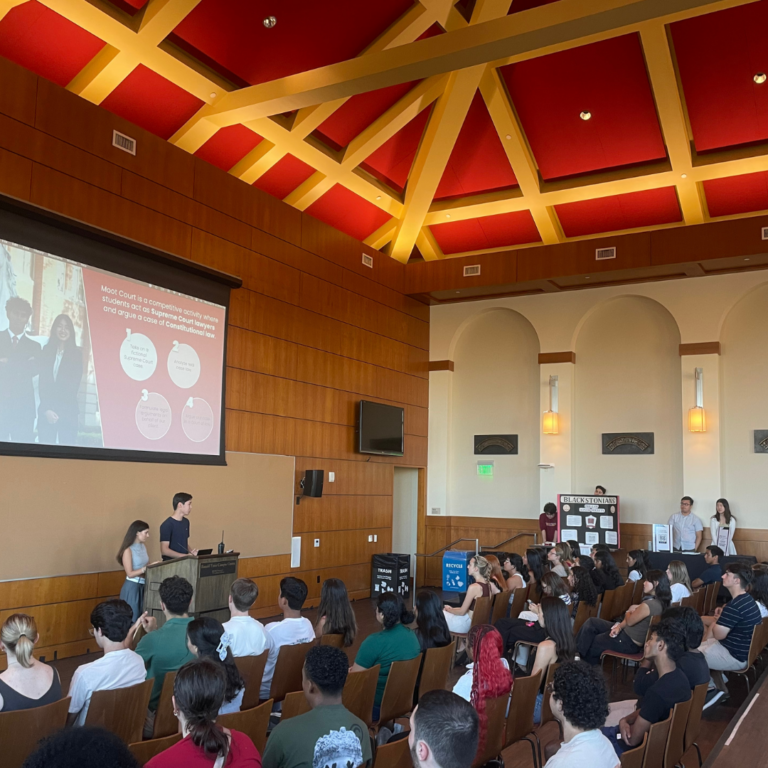Applying to law school
Now that you have all of your application materials together, it’s time to apply.

The Application Process
All law schools require students to submit all application materials through an LSAC service called CAS (Credential Assembly Service) at least two months before applying to law school.
LSAC breaks down Credential Assembly Service (CAS) benefits as the following: “CAS… simplifies the law school application process for both candidates and law schools. With CAS, your transcripts, letters of recommendation, and any other documents required for each of your law school applications only need to be sent one time, to LSAC. All ABA-approved law school applications are available electronically through your CAS account as well, saving you time and effort. LSAC combines your documents with your LSAT score and forwards a full report to all the schools you apply to.” (Source)
An added benefit of CAS is that law schools may choose to use CAS to find potential candidates that have not already applied to their programs.
- CAS overview
- LSAC and CAS fees
- LSAT and CAS waivers are available for those who qualify
Tips:
- Most law schools have rolling admission policies meaning the sooner you apply, the sooner you will probably receive a decision from the law school admissions department. At the very latest target applying by November 1 for the next academic year. Here is a quick article on the rolling admissions process and the pros/cons of applying asap.
- Expect to receive admissions decisions anytime from December through late spring. Patience is necessary!
- Complete financial aid applications, including the FAFSA, soon after January 1st (The earlier the better!)
- Managing stress during this challenging time is critical. If your anxiety and stress surrounding the law school application process start to affect your day-to-day functioning, please do not hesitate to utilize resources through the Engemann Center. They provide targeted workshops and are also available for one-on-one sessions.
- Please know that acceptances AND rejections are part of this process- just like getting into undergrad. If you start receiving rejections, don’t panic. Remember- law schools draw applicants from the waitlist until the beginning of the school year. Start talking to the law schools about their waitlist process, start thinking about back-up plans, gap years, etc.
- Certain law schools ask for a letter from the Dean’s office regarding your standing as a student. Click here for directions on how to obtain the letter.
- After you are accepted, CELEBRATE! And then start investigating financial aid, housing, etc.!
Waitlisting
Waitlists are a normal part of the law school application process.
Start thinking about alternate plans if you are waitlisted for your target school, but not rule out the chances you will be offered a spot at your target school eventually.
Start exploring the cost of living, housing options, etc. at all viable law school choices to prepare for all potential scenarios.
Letters of Continuing Interest may be beneficial for your application. See below for more information.

Letters of Continuing Interest (LOCI)
if you are waitlisted, we encourage you write a letter of continuing interest (“LOCI”) to the law schools that you are most interested in. This is a very common practice.
The letter should express your continued desire to go to that school and provide updates, if any, to your application. Updates might include last semester’s coursework and grades, a new job or completed internship, additional community involvement, etc.
If you are a current student and writing your LOCI the semester after you applied, please update your CAS account. You should upload your latest transcript and mention your latest grades in your letter.
You will want to send your LOCI to the person that send you your letter regarding being waitlisted. if that email is not one that accepts incoming emails, please consider sending the LOCI to the school’s Dean of Admission.
Getting Ready for 1L
1L (the first year of law school) is an incredibly challenging and rewarding time. The summer before law school, take time off, if you can, to relax and recharge before the school year begins in August. Check out this page to learn more about how you can best prepare for law school
